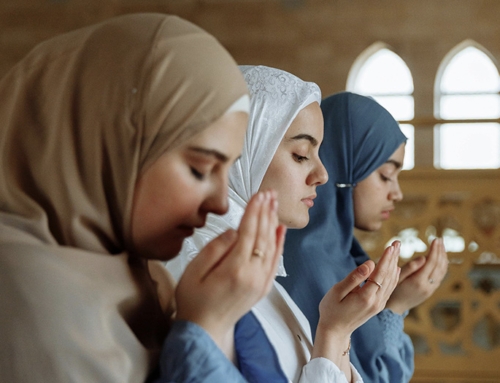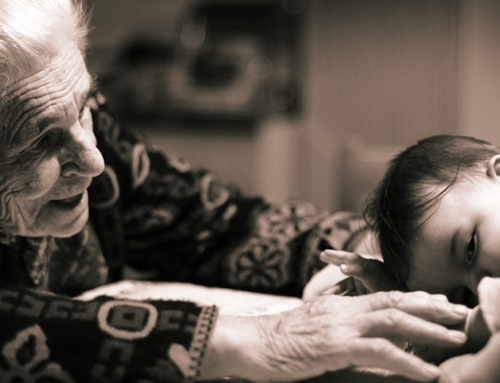By: Meena Malik
How to Worship Allah in Everyday Life
Islam has a holistic definition of worship, including sacred rituals and also mundane everyday actions. Muslims are encouraged to seek the pleasure of Allah in all aspects of their lives. Believe it or not,Islam does not command Muslims to stay in the mosque all day reading the Quran or staying awake all night in prayer to rack up good deeds. Rather, Muslims can seek reward from God for everyday actions as well. While specific ritual acts of worship, such as daily prayer and fasting, are explicitly rewarded, it is also possible to elevate the status of permissible everyday actions into virtuous deeds. So what are some practical hacks for a Muslim to maximize ordinary activities?
The Key: Making an Intention
The first step in converting any permissible action into a good deed is to set the right intention. The Prophet Muhammad (peace be upon him) said, “Actions are judged by their intentions.” Thus, setting a purposeful and positive intention is the key to the treasure trove of daily good deeds. By consciously intending to please Allah, even the simplest of actions can become acts of worship. For instance, intending to eat to maintain good health and strengthen oneself can transform an ordinary dinner into a virtuous act.
As you read on, remember that making a good intention is a prerequisite for elevating everyday actions into good deeds!
Acts of Service, Kindness, and Charity
Acts of service and kindness hold immense rewards in Islam. Any action that demands one to give anything valuable in charity, such as time, emotional support, knowledge, etc., all fall under this gigantic umbrella of good deeds. There is a goldmine of potential good deeds in daily actions, such as chores around the home, having a pleasant conversation with a loved one, paying rent for a home to live in, or playing a game with one’s child. Service happens first and foremost within the home and for the family. To go the extra mile, try incorporating more benevolence into daily life, whether within the home or outside of it. For example, giving a smile and greeting others with kindness, helping someone in need, or sharing one’s knowledge and resources are all ways to bring about positive change and earn the pleasure of Allah.
Some actions which we might easily overlook but have great reward that the Prophet (pbuh) specifically mentioned are: giving water to a thirsty animal, clearing an object off of the sidewalk, and visiting someone who is sick.
Gratitude and Thankfulness
Expressing gratitude to Allah for His blessings is an essential aspect of the Muslim faith. Turning permissible actions into good deeds can be as simple as offering thanks before and after engaging in them. Whether it is enjoying a delicious meal, wearing comfortable clothing, or appreciating a beautiful landscape, recognizing and acknowledging the blessings of Allah transforms these actions into acts of worship. Not only will this fill your scale of good deeds, but studies also show that daily gratitude boosts happiness!
Keeping the Heart Busy with Remembrance or Seeking Knowledge
Whenever one is performing an activity that requires little concentration, keeping the heart busy with remembering Allah or learning more about Islam is an opportunity to multitask and earn exponential good deeds. Engaging in remembrance of Allah, or doing dhikr, during such activities is not only an easy ritual act of worship, but it also helps maintain a spiritual connection and enhances the value of the action in the sight of Allah. This remembrance can be done in any language. Still, there are many short phrases in Arabic that the Prophet Muhammad (peace be upon us) taught Muslims which are simple to memorize, such as Allahu akbar (God is great) or subhanAllah (God is perfect). Acquiring knowledge about the teachings of Islam and reflecting upon them is another powerful means of turning permissible actions into good deeds. For example, while performing routine tasks such as cooking, cleaning, or driving, one can listen to Islamic lectures or the translation of the Quran.
Here are some specific phrases or selections from the Quran which the Prophet Muhammad (pbuh) encouraged Muslims to do: glorifying Allah with subhanAllah, the three popular remembrances of subhanAllah, alhamdulillah, and Allahuakbar, and reading the 112th chapter of the Quran, Surah al Ikhlas, is equivalent to ⅓ of the entire Quran.
Purification of Intention
Constant self-evaluation and purification of intentions are crucial in converting permissible actions into good deeds. Regularly assessing one’s motives and ensuring they align with the principles of Islam helps maintain sincerity in all activities. By consciously avoiding intentions tainted with pride, vanity, or jealousy, Muslims can transform their actions into acts of devotion and earn the pleasure of Allah. An example of an intention corrupted with vanity could be that one bathes their child every day because they want that child to love them more than the child’s other parent.
How to Earn the Rewards and Blessings of Allah
Islam encourages Muslims to view their entire lives as an opportunity for worship and spiritual growth. By incorporating these practices into their daily routine, Muslims can transform even the most mundane and permissible actions into acts of worship and earn the rewards and blessings of Allah. With sincere intentions, performing acts of service, being kind, expressing gratitude, remembering Allah, learning something new about Islam, and purifying intentions, Muslims can ensure that their every action becomes a good deed they can invest in for the eternal hereafter.
Got Questions?
We have Answers. Get in touch now.








